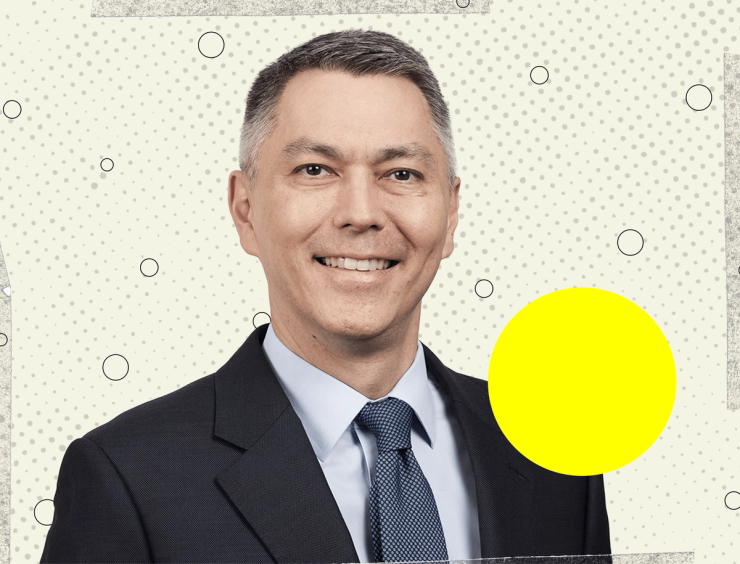The Signal Interview
Almost six years since Mike Henry was named to lead the world’s largest mining company by market cap, speculation has begun about who might succeed him, perhaps by the middle of next year. BHP has a new board chair, Ross McEwan, and executives including Geraldine Slattery, the head of its Australian operations, and Vandita Pant, chief financial officer, are seen as among the frontrunners.
Henry has read the stories, he says without confirming them, but still sees much to do. After three decades in the sector, “there’s never been a more interesting time to be in the industry, with so much in flux currently.”
“As I’ve gone out and engaged with governments, both here but also around the world, we are dealing with a new reality,” he says in an interview in a New York adviser’s office. Political leaders from Australia to Europe to the US are trying to address voters’ “real discontent” about deindustrialization and the rising cost of living, he notes. “At the same time, you see a much higher awareness of the importance of mining and the fragility of critical-mineral supply chains.”
Politicians are pulling various policy levers to tackle those challenges, he observes. “Not all of them will be successful, but I think governments are scrambling to address this problem as quickly as they can.”
Dealmaking wins and losses reshape the BHP portfolio
There has been flux inside BHP, too. Henry, a Canadian-born, Japanese-speaking former chemist, spun out its oil and gas business in 2022, and divested thermal coal assets to focus on higher-quality metallurgical coal. Most critically, he helped reduce the $143 billion group’s dependence on iron ore, where profits were hit by falling Chinese steel demand.
Acquisitions and investments have expanded BHP’s copper operations by nearly 30% in three years and set it up to become one of the world’s largest producers of potash.
One top target eluded him when UK rival Anglo American rebuffed a $49 billion bid from BHP last year. “If we spot an opportunity where we believe that we can create greater value for BHP shareholders… then it’s kind of incumbent on us to look at whether we can unlock that value,” he says, defending the failed approach. “But in that case, it wasn’t to be.”
Anglo has since agreed to a friendly $53 billion merger with Teck Resources. Henry declines to say whether he has ruled out another offer, but notes BHP has redoubled its efforts to pursue growth options within its existing portfolio. “We’ve been very careful not to have a strategy that’s dependent upon M&A, because oftentimes where companies come unstuck is where they believe that they have to pursue M&A for growth, and they end up doing ill-disciplined things,” he says.
Finding alignment in a volatile political context
BHP executives have warned recently that “nationalistic tendencies” are complicating dealmaking in its industry. The company is used to operating in complex political conditions, but Henry admits that the degree of volatility in his time as CEO — encompassing the pandemic, Russia’s invasion of Ukraine, and President Donald Trump’s second-term trade tariffs — has been “even more significant than any of us were expecting.”
Henry warned last December that the import tariffs Trump envisaged posed a “key challenge” for the world’s transition to green energy. He says now that they “haven’t had a significant impact” on his sector. But for them to drive meaningful investment in US mines, “the ultimate ambition should be to get those tariffs put in place legislatively.” When a company like BHP is contemplating an investment of $5 billion to $10 billion in such a venture, it needs certainty for 10 to 15 years, he says, which an executive order lacking congressional backing cannot provide.
Henry was in the Oval Office in August to pitch BHP’s Resolution Copper mining joint venture with Rio Tinto in Arizona, a project he says could supply up to 25% of US copper demand for decades. Trump offered supportive comments that day, calling the environmentalists and indigenous groups who oppose the project “anti-American,” and Henry sees areas of alignment amid the political complexity.
“In the face of the economic pressures that governments are carrying currently, the opportunity to secure big, multibillion-dollar investments in resources projects is pretty attractive” to them, he notes. BHP, he adds, is not courting the kind of investments that the Trump administration has made in far smaller producers of critical minerals.
The CEO’s role in tracking shifting expectations
Henry does not see a wholesale shift in the political winds away from environmentalist caution towards a more national security-driven enthusiasm, but talks of a “rebalancing” of those impulses.
“At the end of the day, we have to have a strong economy, and we have to be able to protect the environment. If we swing too far in the direction of one side of that equation, we’re going to miss out on this economic opportunity, and we can ill afford that,” he says.
BHP faced years of litigation after the collapse in 2015 of a Brazilian dam it owned and operated with Vale, and campaigners have expressed skepticism about its seriousness in balancing economic and environmental considerations. Henry is adamant that he sees its pledges to cut emissions or reduce water use as a matter of strategic resilience rather than mere public relations.
Failing to operate with ever more sustainable practices would only create “unnecessary other issues,” he says. “We know that for us to be successful as a company over the long term, and for the industry to continue to do what it needs to do, we have to be meeting the growing expectations of broader society.”
Henry’s experience has convinced him that one of his most important jobs as CEO is to spend enough time with external stakeholders that he can catch shifts in expectations and alert his team to them quickly.
“One of the things that I’ve sought to do, and the executive team has sought to do, is to become more externally engaged, to be out there, sensing the environment around us, and to be bringing back inside the company what it is that we’re sensing,” he says. By combining his external relationships with rigorous discussion between executives and board members, “hopefully we come up with better decisions.”
An ‘operating system’ designed to outlive its designer
Henry’s meetings with his executives have one unusual feature. Before each one, he assigns someone to provide structured feedback on how well or badly the discussion aligns with BHP’s criteria for an effective meeting. That critique — even on Henry’s chairing — is delivered publicly to all participants. It signals, he says, that BHP’s rhetoric of “enablement, support, coaching and engagement” is applied consistently as it cascades down the 90,000-person organization, from head office strategy-setters to employees in far-flung mines.
The practice forms part of the BHP Operating System, an approach to continuous improvement which Henry helped design in his previous role running the group’s flagship Australian operations. The system is meant to standardize processes across the company, empower frontline workers, and tie individuals’ targets to the group’s priorities. Henry credits it with driving recent improvements in BHP’s cost base and free cash flow.
“The classic challenge in our sector is that your operational performance rises and falls based upon the management team of the day,” he says, and BHP wanted to end that inconsistency, embedding principles deep in the organization that would make it less reliant on top-down direction.
“I don’t want everything coming up to the top for a decision,” Henry says. More than 90% “of this effort is about giving people on the front line the license and the capability to pursue improvement in their own work because they understand the work the best.”
Seven years after the operating system launched, senior leaders still need to be “laser-focused” on advocating for it, because “organizational entropy will always work against trying to systematize things,” Henry says. But it is a system he hopes will outlast him.
Whenever the time comes for him to hand the reins over, “I hope the headlines will focus on the new CEO and the opportunity that lies ahead for the company,” he says. “The BHP Operating System is meant to establish a certain way of working and performance culture and performance capability in the organization that is not reliant upon leadership. BHP has had the fortune of having so many good management teams. Over time, we’ve all built upon one another.”
Notable
- The Trump administration’s efforts to reform the US permitting process are likely to have a “much bigger impact” than tariffs in boosting the domestic mining industry, Henry told Semafor’s World Economic Summit earlier this year.
- Copper prices should not be so perky at a time when the world’s economy is hardly surging, The Economist cautions. Metals traders feel bubbly, it writes, but their celebrations “could end with a fearsome hangover.”


